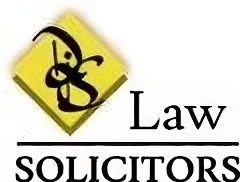One of the main dilemmas of the law of damages
BPE Solicitors and another v Hughes-Holland (in substitution for Gabriel) [2017] UKSC 21
Introduction:
This important Supreme Court decision looks at what damages are recoverable in a case where (1) but for the negligence of a professional advisor the client would not have embarked on some course of action; and (2) where part or all of the loss suffered arose from risks which it was not part of the professional’s duty to protect the client against.
The Facts:
The facts, in brief, were that Mr Gabriel was a businessman. Little was a builder and developer and a personal friend of Mr Gabriel. In November 2007, Mr Little told Mr Gabriel that he was looking to borrow £200,000 to develop and convert a disused heating tower into offices. Mr Gabriel visited the site and formed a view that the site was worth about £150,000 and, once developed, would be worth more than £400,000. Mr Gabriel decided that the project was worthwhile and decided to lend Mr Little the £200,000 needed on the assumption that Mr Little would use the money to redevelop the property.
Mr Gabriel later discovered that the property was owned by Mr Little’s company and was subject to a charge securing a bank loan of £150,000. Mr Little intended to use Mr Gabriel’s £200,000 to pay off the £150,000 owed by his company to the bank, and was not contributing a property to the project and using Mr Gabriel’s loan to develop it.
BPE Solicitors drew up the facility letter and charge over the property but erroneously used statements to the effect that the loan monies “will be made available as a contribution to the costs of the development of the property” and that the purpose of the loan was to “assist with the costs of the development of the property”. The transaction was a failure and Mr Gabriel lost all his money.
Judgment at first instance:
Mr Gabriel sought to bring professional negligence proceedings against BPE Solicitors. At first instance, the judge held that BPE had no duty to advise Mr Gabriel about the commercial risks associated with the project, but should have explained to him that the funds would have been applied for Mr Little’s benefit and that, in reality, he was not putting anything into the project. It was held that BPE Solicitors were negligent, as had Mr Gabriel not been misled by the statements that appeared in the loan documentation, he would not have made the £200,000 loan. Mr Gabriel was awarded damages representing the full amount of the loan.
Appeal to the Court of Appeal:
BPE Solicitors appealed to the Court of Appeal, which allowed the appeal. Gloster LJ found that there was no positive evidence that if the £200,000 loan had been spent on developing the property, its value would have increased to ensure the recovery of Mr Gabriel’s loan. The Court of Appeal held that the whole loss was attributable to Mr Gabriel’s misjudgements and reduced the damages to nil. In essence, even if BPE Solicitors were in breach of duty, Mr Gabriel failed to demonstrate that BPE Solicitors caused the loss he encountered.
SAAMCO & The Supreme Court’s decision:
The Court of Appeal also considered the case of South Australia Asset Management Corporation v York Montague Ltd [1997] AC 191 (“SAAMCO”), which the Supreme Court also endorsed as applying to solicitors and other professionals (the original SAAMCO judgment was given by the House of Lords in the context of negligent valuers).
The SAAMCO principle distinguishes between a duty to provide information for the purpose of enabling someone else to decide upon a course of action and a duty to advise someone as to what course of action they should take. In this case, the Supreme Court agreed with the Court of Appeal that BPE did not assume responsibility for Mr Gabriel to lend money to Mr Little and that Mr Gabriel’s loss arose from his own commercial misjudgements. Mr Gabriel’s appeal from the Court of Appeal’s decision was therefore dismissed.
Comment:
The Supreme Court has reaffirmed the SAAMCO principle expressed by Lord Hoffman some 20 years earlier, however, Lord Sumption has, despite recognising the case as \”one of the main dilemmas of the law of damages\”, clarified that:
- In advice cases, the professional owes a duty to consider all relevant matters and guide the decision-making process. It is only if matters are negligently ignored or misjudged, and this proves critical to the decision, will the professional be liable for all losses flowing from the advice; and
- In information cases, where the professional provides only part of the information that will guide the decision-making, but the overall commercial assessment is for the client, the professional will then only be liable for the financial consequences of it being wrong, and not for the financial consequences of the client entering into the transaction so far as these are greater.
Contact Us
Get in touch with DJS Law for expert legal advice and representation. Our dedicated team is ready to assist you with a wide range of legal matters. Whether you have questions, need a consultation, or require immediate assistance, we’re here for you. Reach out to us via phone, email, or by filling out the contact form below. Your legal solution starts with DJS Law.
